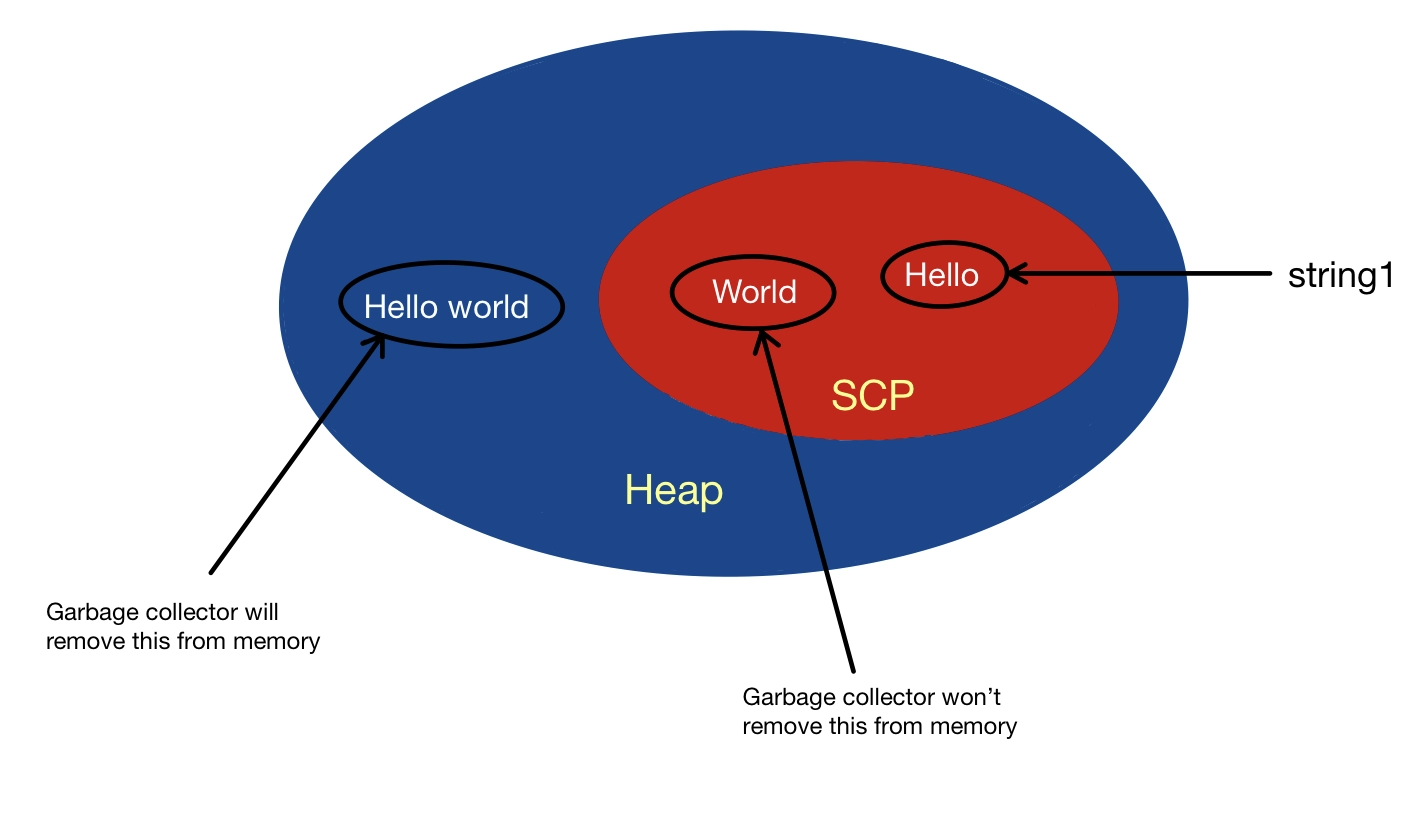Why Are Strings Immutable in Java? Important Knowledge for Programmers
Why Are Strings Immutable in Java? Important Knowledge for Programmers
Blog Article
What Is Immutable Strings and Exactly How It Works
In the realm of programming, understanding the idea of unalterable strings is critical for developing robust and safe applications. Immutable strings refer to strings that can not be altered after they are developed, guaranteeing information integrity and predictability within the code.
The Basics of Unalterable Strings
Unalterable strings, as a basic concept in programs, are character series that can not be altered when they are developed. This means that once a string is assigned a value, that worth can not be altered. In languages like Python and Java, strings are immutable things, leading to different implications in regards to memory management and data integrity.
One of the key advantages of immutable strings is that they offer a sense of security in data manipulation. Given that the content of an unalterable string can not be customized, it makes certain that the original information continues to be intact, reducing the threat of unintended changes throughout program execution (Why are strings immutable in Java?). This property also streamlines debugging procedures, as designers can rely on that as soon as a string is defined, its worth will not be accidentally changed
When a brand-new string is created based on an existing one, instead than modifying the initial string, the brand-new value is kept independently. Generally, understanding the basics of immutable strings is critical for grasping programming concepts and maximizing code effectiveness.
Advantages of Unalterable Strings
Structure upon the protection and efficiency benefits of unalterable strings, their advantages expand to boosting code integrity and streamlining concurrent programming jobs. By being unalterable, strings can not be modified after development, which removes the risk of unplanned changes in the data they save. This integral immutability makes sure that as soon as a string is produced, its value continues to be consistent throughout the program's implementation, reducing the opportunities of bugs brought on by unexpected alterations.
Additionally, unalterable strings add to code integrity by making it less complicated to reason concerning the state of a program. Considering that strings can not be transformed, programmers can trust that a string will certainly constantly hold the same worth, simplifying debugging and maintenance initiatives. This predictability brings about more stable and trustworthy codebases.

Application in Shows Languages
Within various programming languages, the unification of immutable strings is an essential aspect that affects exactly how data is dealt with and manipulated within code structures. The implementation of immutable strings differs across various shows languages, with each language offering its very own mechanisms to sustain this principle.

In comparison, languages like C and C++ do not have integrated support for immutable strings. Programmers in these languages should by hand apply immutability by applying policies within their code to avoid direct adjustments to string objects.
Best Practices for Dealing With Unalterable Strings
When handling unalterable strings in programs languages like Java and Python, sticking to best practices makes sure safe and secure and efficient information control. One of the key finest techniques is to make use of StringBuilder or StringBuffer official site rather of directly manipulating strings, particularly when dealing with substantial concatenation operations. These courses give mutable choices for string manipulation, aiding to stay clear of unnecessary memory allocations and boosting efficiency.
An additional ideal practice is to utilize string interpolation or formatting works offered by the language rather of hand-operated concatenation. This not just enhances readability however also help in avoiding typical risks such as unintended string modifications. Furthermore, when dealing with delicate information such as passwords or API tricks, it is essential to stay clear of keeping them as plain text in immutable strings. Utilizing safe and secure storage mechanisms like char arrays or specialized collections for taking care of sensitive info helps alleviate security dangers connected with unalterable strings.
Real-world Applications and Examples
Discovering functional implementations of unalterable strings in numerous markets exposes their substantial influence on data integrity and system dependability. In the medical care industry, immutable strings play a critical duty in ensuring the safety and confidentiality of person information. By preventing unapproved alterations to delicate info such as medical documents and prescriptions, immutable strings assist maintain compliance with rigorous personal privacy regulations like HIPAA.
Banks also gain from the unalterable nature of strings to boost the safety of client information and purchase records. Immutable strings help stop fraud and unapproved changes to financial info, supplying a robust defense against cyber risks and making sure the trust fund and confidence of customers.

Verdict
In final thought, immutable strings are fixed and stable series of personalities that supply advantages such as string security and boosted performance in programming. They are implemented in various programs languages to guarantee information integrity and safety and security. Finest methods for dealing with immutable strings include preventing straight adjustments and utilizing approaches that return brand-new string items. Real-world applications of immutable strings consist of data file encryption, caching, and string control jobs.
Unalterable strings refer to strings that can not be changed after they are created, guaranteeing data stability and predictability within the code. When a new string is developed based on an existing one, instead than customizing the initial string, the new value is stored independently.In languages like Java and Python, strings are immutable by default, implying that when a string item is developed, its value can not be altered - Why are strings immutable in Java?. Finest techniques for working with unalterable strings consist of avoiding straight modifications and using methods that return brand-new string things. Real-world applications of immutable strings consist of information security, caching, and string adjustment jobs
Report this page